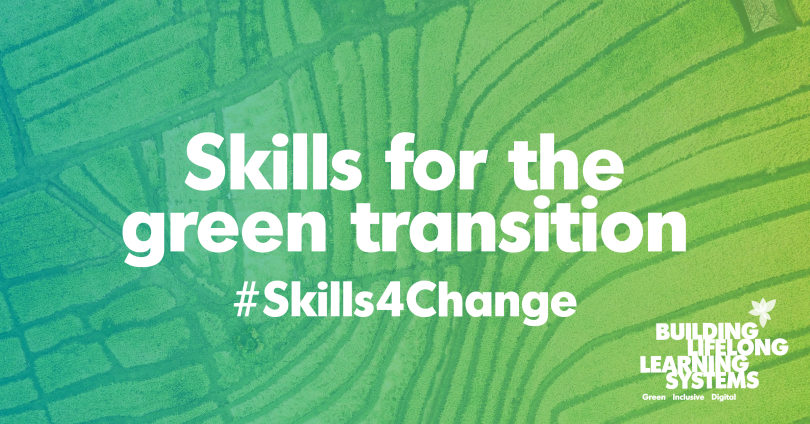
France/Belgium - Rediscovering the ETF Green Skills Award finalists
Association Emmaüs is one of France’s largest NGOs, set up in 1949 to combat poverty and homelessness. As part of its support for the disadvantaged, the association takes old furntiture, household items, computers and the like to be repaired and then re-sold, in the process re-using products and financially supporting the homeless.
In 2016, the association launched an e-commerce website, Label Emmaüs, to sell re-used goods throughout France. “In rural communities it can sometimes be difficult to sell specific items, like a violin or piece of art, which would sell better elsewhere online. It has also given us a much bigger audience. There is also a platform for donated or unsold books,” says Julien Piccirillo, Programme coordinator at e-commerce school Label Emmaüs in Paris.
The online platform sells some 1.5 million pre-owned goods, contributing to the circular economy and the re-use of goods. “The project is for the inclusion of all people in society and to lead to a better world. Our vision at Association Emmaüs is to give objects a second life to give a second chance for mankind, and a good future for the planet,” says Julien.
In 2019, Label Emmaüs started a training centre, Label Ecole, in Paris focused on digital skills. One month of training is provided, with the only requirement to joining to be unemployed or hold just a baccalauréat (secondary school qualification). “People with just a baccalauréat have the highest unemployment rate in France,” says Julien.
After the one month of training the centre assists students in finding other training possibilities at Label Emmaüs or through other NGOs. “It is not often possible for students to find work after just a month’s training. We provide further support, and also have a soft skills workshop, which has become very important, almost as important as having hard skils,” he says.
The centre offers other forms of training, such as digital marketing, web development, and design creation. One workshop specialises in graphic design for web-pages and internet marketing.
A further programme is in project management in e-commerce. “This training is more intense as it is three months long. Students get to study different digital fields, and also get an introduction to e-business,” says Julien.
Once a programme is completed, the centre supports students in writing a curriculum vitae (CV), and tries to partner participants with companies in the Paris region for internships. “We support students until they find what they want to do, and to do an internship,” he says. Under French law, if an internship is longer than 10 weeks, the intern must be paid.
The latest programme is a digital agency to train people and get a contract to work with Label Emmaüs.
“From our experience we seen how difficult it is for beneficiaries to find jobs, as for internships companies often ask for one or two years of work experience. That is a problem for conventional students, so it is even harder for our beneficiaries. Our mission is to change the profile of the people that companies are involved with, to bring in more diversity. We are lobbying companies to have more diversity and not the same employee profiles,” says Julien.
Label Ecole is a small team of a manager, coordinator and intern. For training, the centre relies on some 70 volunteers that freely give their time, or through partnerships with a company. “Our reputation is very good, and Association Emmaüs is famous throughout France, so people come to us to participate in projects,” he says.
With all the training provided free, funding has been a continual struggle to support the centre itself, and the participants. Funding has come from institutional donors, the European Union and private foundations.
One big difference between Label Ecole and other training centres is that it is completely free, as in France workers are allocated funds from the government for training purposes if they become unemployed or want to re-train in another profession. “For example, if I worked for five years I would have Euro 2,000 allocated for training. A lot of training centres then use this money to pay for the courses. We decided not to do this as a participants will have had to work before, which might not be the case. Or if someone is say 20 years old, and has not really worked, there would be nothing in this government-related account. We want to help everyone,” says Julien.
Since September 2019, Label Ecole has trained 130 students, of which 53 percent are women. “It is a big challenge in the digital area to have more gender balance,” he says. Some 20 percent of students are from disadvantaged areas in greater Paris.
The centre is aiming to increase the number of participants and bolster its overall training programme. “We would also like a new location, as at the moment we’ve only three training rooms, which is not enough to really develop our activities and host more participants,” says Julien.
Did you like this article? If you would like to be notified when new content like this is published, subscribe to receive our email alerts.